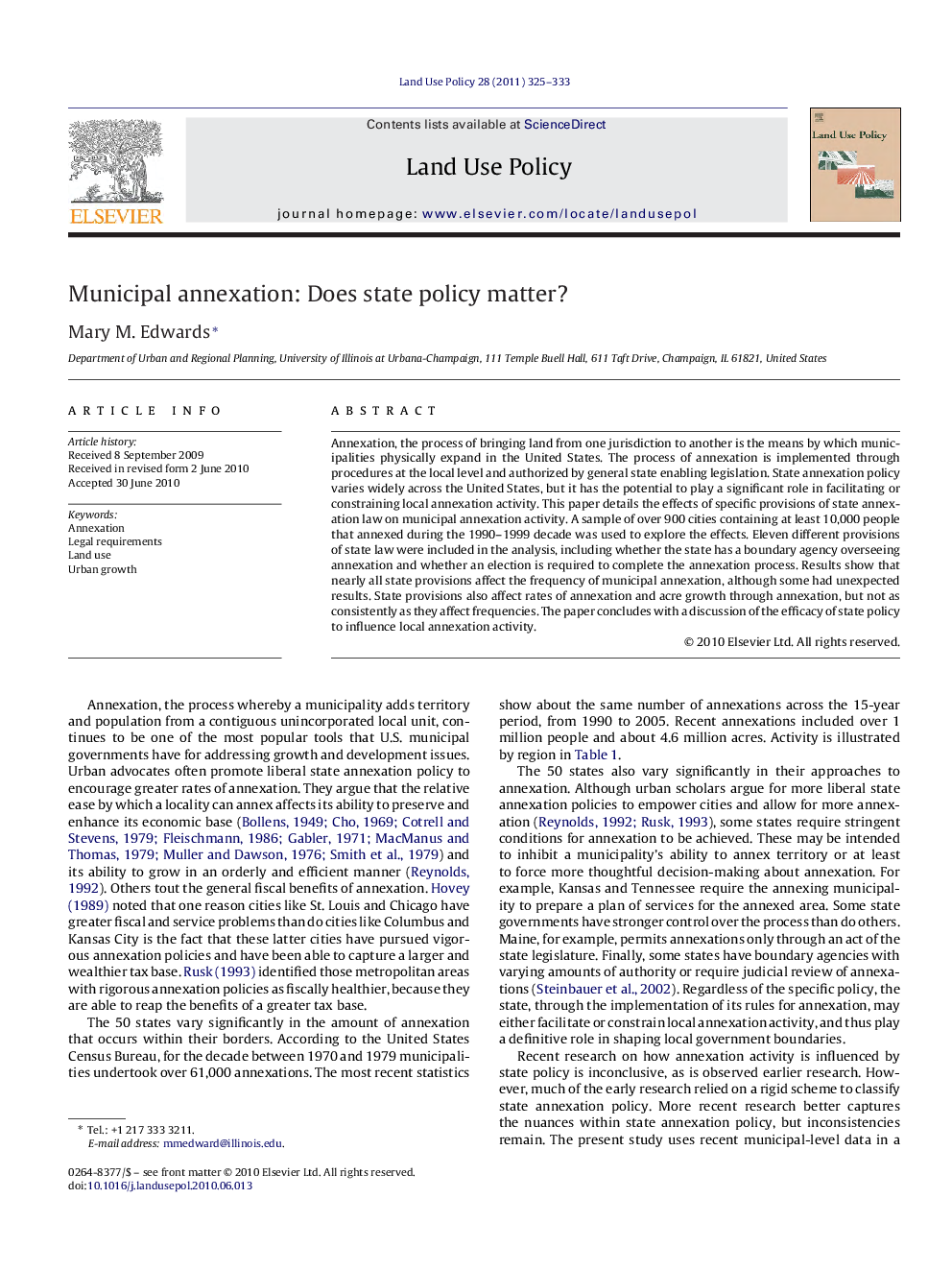| Article ID | Journal | Published Year | Pages | File Type |
|---|---|---|---|---|
| 93452 | Land Use Policy | 2011 | 9 Pages |
Annexation, the process of bringing land from one jurisdiction to another is the means by which municipalities physically expand in the United States. The process of annexation is implemented through procedures at the local level and authorized by general state enabling legislation. State annexation policy varies widely across the United States, but it has the potential to play a significant role in facilitating or constraining local annexation activity. This paper details the effects of specific provisions of state annexation law on municipal annexation activity. A sample of over 900 cities containing at least 10,000 people that annexed during the 1990–1999 decade was used to explore the effects. Eleven different provisions of state law were included in the analysis, including whether the state has a boundary agency overseeing annexation and whether an election is required to complete the annexation process. Results show that nearly all state provisions affect the frequency of municipal annexation, although some had unexpected results. State provisions also affect rates of annexation and acre growth through annexation, but not as consistently as they affect frequencies. The paper concludes with a discussion of the efficacy of state policy to influence local annexation activity.
